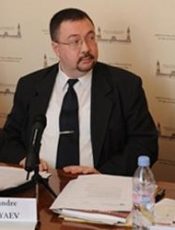The stability in Africa is undermined by many militant groups, including Boko Haram in Nigeria, Al-Shabaab in Somalia and Al-Qaeda in the Islamic Maghreb spreading terrorist activities to Mali, Niger and other countries. The Lord’s Resistance Army, or LRA, deserves special attention. It has been going on a rampage in Uganda since 1987 when it started to fight the government of Yoweri Museveni that came to power in 1986. The group attacks civilians, kills and kidnaps people, including women and children. One of the main accusations against the leaders of the LRA is military use of children.
The LRA is responsible for killing tens of thousands of people in the five neighboring countries. In the first six months of 2015 it has attacked urban areas more than 130 times, killing dozens and kidnapping three hundred people. The contemporary world leaders are watching the events without much concern. It’s not Paris, after all.
LRA formations join together with other militant groups to get involved in illegal trade, including ivory, diamonds and gold. Like many other African terrorist groups today, the LRA extends its activities beyond national borders, including the east of Central African Republic, the north-eastern part of Democratic Republic of Congo, as well as territories of South Sudan and the Republic of Chad.
LRA formations are opposed by regular militaries of some states, UN missions (the UN mission in Democratic Republic of Congo, the UN mission in Central African Republic and the UN mission in South Sudan), as well as the Regional Initiative launched by the African Union. The goal of the A.U. Regional Initiative is to achieve the «elimination of the LRA, leading to the creation of a secure and stable environment» in the four countries affected by the LRA: Uganda, the Democratic Republic of Congo, the Central African Republic, and South Sudan.
The participation of US Army in the anti-LRA operations is a fact worth mentioning. LRA and its leader Joseph Kony were put on the list of leading «global terrorists» after 9/11, 2001. Hundreds of US military instructors were sent to Uganda. This is another good example to illustrate the little known fact that the 9/11 event was used as a pretext for sending US military to all corners of the world. No matter, the LRA is confronted by a powerful «anti-terrorist coalition»; its formations numbering just 300-1000 men remain undefeated. It’s either the UN forces have no authority to fight the terrorists, or the thugs receive warnings to have enough time to flee the area before the operations are launched…
The recent report issued by the United Nations Secretary General states that the UN mission and the AU force are fighting the group by applying the efforts to lure LRA rank-and-file fighters into deserting.
This is ridiculous. According to LRACrisisTracker, only ten people left the LRA’s ranks in the first half of 2015.
On December 8, the United Nations Security Council held a meeting to discuss the fight against the Lord's Resistance Army. Once again it ended up with nothing more that warnings that the «crisis sparked by Lord’s Resistance Army in Central Africa must not be underestimated». The United Nations Security Council failed to make any decisions!
The same way the International Criminal Court (ICC) «fights» the criminal group. The story is also intriguing. The confirmation of charges hearing in respect to Dominic Ongwen, an LRA leader, is scheduled to commence on 21 January 2016. The facts show that the Court, although possessing enough resources to conduct actions imitating the fight against terrorism, is not pursuing the goal to put an end to the activities of LRA.

The case against LRA was handed to the ICC by the local authorities of Uganda. Many African countries supported ICC hoping to use it against internal opposition. The Democratic Republic of Congo and the Republic of Cote D’Ivoire tried to follow the Uganda’s example. The hopes were dashed. The International Criminal Court only needed recognition of its jurisdiction; it cared little about other things. All people subject to arrest warrants issued by the International Criminal Court have been eliminated. It proves the fact that in the case of Uganda the ICC plays its own game. Raska Lukwiya, the third highest-ranking leader of the Lord's Resistance Army rebel group, was murdered in 2006. Vincent Otti, deputy-leader of LRA, was killed in late 2007. Okot Odhiambo, a senior leader of LRA, was slain in April 2008. Joseph Koni, the LRA’s leader, is the only one left alive of five people for whom the International Criminal Court issued the arrest warrants in 2005 for claimed war crimes and crimes against humanity. The Court has its own plans for Africa. The ICC owners have no interest in eliminating the destabilizing forces while the local governments fight them asking the ICC for help. The international body has taken no action against the LRA’s leaders, though formally the arrest warrants have been issues. Only Yoweri Museveni, the President of Uganda, actively opposed the Court. He used the African Union for the purpose, among other things. Dominic Ongwen, the commander of the Sinia Brigade of the LRA, unexpectedly gave himself up to face justice on January 21, 2015. The International Criminal Court showed it had leverage to make the leaders of «insurgent groups», «voluntarily» surrender at the right moment. Some time ago, former President of South Africa, Thabo Mbeki, told that the Court was quick to intervene into his efforts to manage the conflict with the Lord’s Resistance Army with the help of negotiations and amnesty.

Actually, the ICC has already put an end to the successfully started mediation efforts undertaken by South Africa.
All told, these facts lead to the conclusion that the terrorist Lord’s Resistance Army is part of global terrorist network ruled from a single center.










